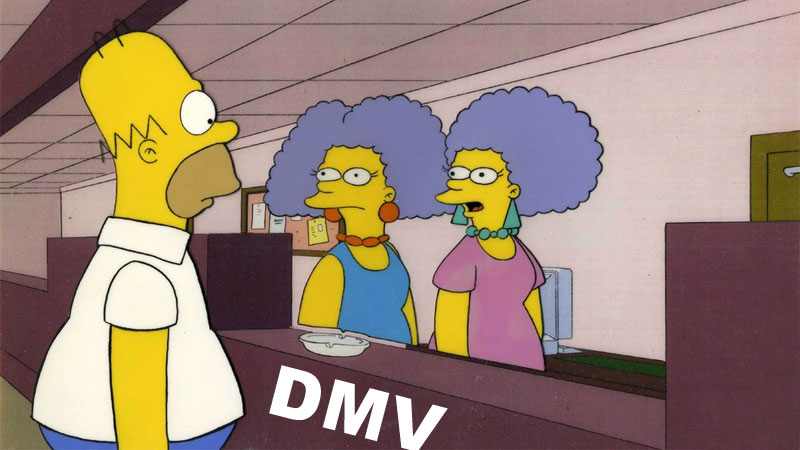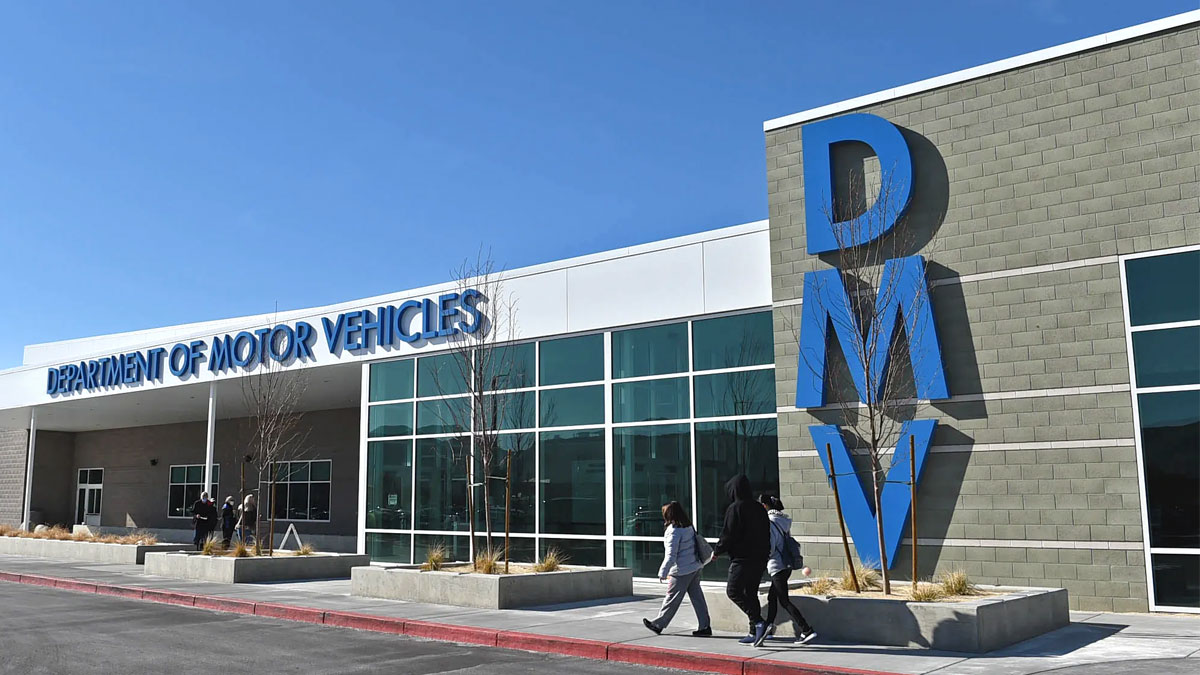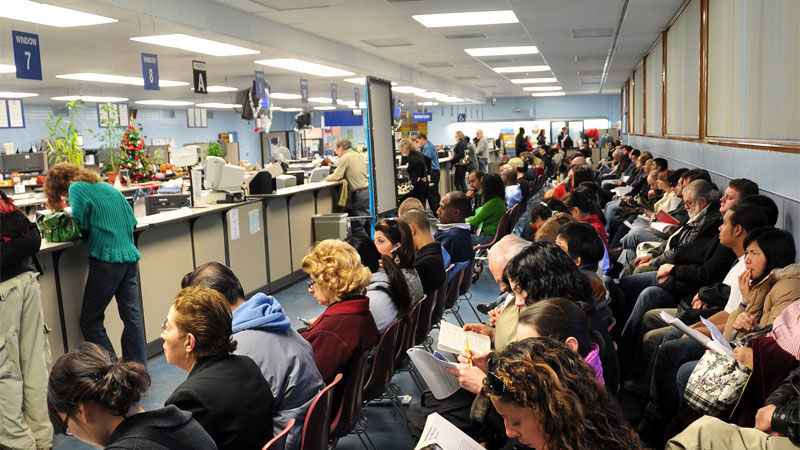We’ve all experienced it. The misery of sitting in the dreary DMV, staring at the clock as the minutes slowly tick by, the fluorescent lights draining everything of color. The crying baby piercing the silence. Checking your ticket number for the 15th time, disbelieving they’re only at B094 when you’re B112.
Finally, your number’s called by a stone-faced worker whose flat affect and curt impatience makes you feel you’re to blame for an already wretched system. They silence your polite questions, dismiss your confusion over forms, exhale annoyance if you ask for clarification.
And so it goes. Why are DMV employees so rude? It’s easy to dismiss them as miserable people in a miserable job. However, the roots of DMV rudeness stem from deeper institutional and cultural forces that demand reform.
Factors Contributing to Rudeness
1. Heavy Workloads and Daily Frustrations
Being a Department of Motor Vehicles worker is mentally draining, dealing with endless queues daily. Excess customer volume stems from understaffing. Hundreds of admin tasks mount without relief as days blur. Pressure cooker tensions rise.
Tedious paperwork processing under complex codes stalls employees. Yet inadequate digitization means customers often provide incomplete submissions, exponentially growing collective frustration. Bitter complaints become background noise frazzling cognitive focus.
Prolonged exposure to such a mentally draining high-stress public service environment inevitably erodes even the most resilient employee’s patience, as the fundamental system excesses wear down their bandwidth for courteous interactions over time.
2. Poor Workplace Conditions
While intense workloads strain external relations, equally demoralizing internal conditions exacerbate difficulties. Limited career growth and low compensation mean many capable employees seek relief elsewhere.
Despite bearing public disenchantment burdens, DMV employees contend with median wages under $40,000 annually to process high admin volumes. Negligible performance incentives offer little motivation.
Promotion barriers are immense, advancement opportunities scarce. Cynicism spreads as leadership fails to recognize long-term employee dedication, further calcifying resentment.
3. Interpersonal Challenges
On top of punishing work conditions, DMV employees also wrestle with taxing interpersonal issues all day long. This endless confrontation also takes its toll. Much of the job involves conveying negative information about licenses suspensions, registration expirations, paperwork fines, and other issues. This breeds resentment on both ends.
Lengthy waits and systemic problems manifest in irate customers who vent frustrations directly on agents. Enduring complaint after complaint hardens employees over time. When customers escalate aggression and anger, workers must calmly enforce policy despite extreme provocation. Doing so thousands of times slowly desensitizes.

4. Toxic Work Culture and Low Morale
On top of external conditions straining DMV employees, internal cultural issues also negatively impact morale. Overall, the work climate trends toward toxicity rather than engagement.
The daily crush of demanding workload and frustrated customers creates a perpetual pressure cooker environment. Workers feel they can never catch up or meet expectations. This breeds bitterness.
Rather than bolster team morale and effectiveness, evidence suggests DMV leadership rarely addresses root causes harming culture. Staff feel expendable. Inadequate responses to core issues perpetuates perspectives that employees are simply cogs in a vast, lumbering, bureaucracy rather than valued public contributors. Cynicism spreads.
Impacts and Effects
The endemic rudeness of DMV employees, stemming from ingrained institutional problems, negatively impacts the customer experience, employee engagement, and even societal perceptions.
Negative Public Impressions
As most citizens will interact with the DMV at some point, rude staff shape strongly negative impressions which spread rapidly through word-of-mouth and social media. DMVs become cultural laughingstocks and case studies in dysfunctional bureaucracy.
Surveys show 80% of Americans have had a frustrating DMV experience, poisoning public opinions. Without intervention, generations will continue absorbing and propagating negative stereotypes.
Increased Employee Burnout and Turnover
The chronic strain of heavy workloads, frustration, and workplace toxicity drives many burnt out employees to exit for less draining roles over time. This significantly feeds the understaffing issue plaguing DMVs, as leadership fails to adequately replace the steady outflow.
Perpetual understaffing exponentially increases pressures on remaining employees, creating a self-perpetuating burnout cycle. Experts estimate DMVs lose between 10-15% of workforce annually due to resignations.
Cycle of Negativity Between Workers and Customers
Exhausted, bitter employees interact abrasively with exasperated customers, who then retaliate against workers in kind. Customers direct complaints to out-of-touch leadership, which routinely fails to address core culture and staffing root causes.
This destructive cycle spirals, intensifying cultural disdain toward DMVs. Without meaningful change, the cycle simply indoctrinates new employees and customers into the climate of resentment.
While routine DMV interactions may seem trivial on the surface, the downstream impacts on public service quality, employee retention, customer experience, and organization costs underline the urgent need for proactive reforms. Leadership must break the cycle.
Potential Solutions
While the cultural and institutional issues plaguing DMVs foster routine rudeness, viable solutions exist if leadership commits to genuine reform.
Improved Salaries and Promotion Incentives
Better compensating the immense workload could boost retention and morale. Added performance incentives and advancement pathways would also help.
Adequate Staffing and Training
Hiring enough staff is imperative to handle customer volumes smoothly and reduce burnout. Enhanced training on workplace challenges would better support employees.
Streamlined Technological Systems and Procedures
Upgrading outdated systems and reviewing bureaucratic processes could greatly reduce redundant frustrations on both ends.
Workplace Culture Interventions
Leadership should prioritize monitoring and responding to poor workplace culture. Employee input and strengthened labor relations could mend internal rifts.
Customer Service Feedback Channels
Adding constructive customer feedback channels shows customers they have a voice. Positive suggestions can inform constructive reforms.
With commitment to empathic leadership, investment in employees, and technological modernization, entrenched negativity can transform into engaged, supportive public service.
Tips for the Public
- Come prepared with all required documentation so employees don’t have to process incomplete submissions.
- Arrive early or at off-peak times to avoid long wait times which strain worker concentration. Check Google what days and times are less busy than normal.
- Treat employees with basic kindness and patience. Don’t automatically assume they won’t be kind in return.
- Have all forms filled out in advance to expedite appointment speed.
- Understand that employees don’t make the rules, they just enforce them (ie: don’t shoot the messenger).
- If you do get frustrated, take a breath rather than snap at workers.
- Say “please” and “thank you” during interactions. It really makes a difference.
- Keep reasonable expectations about projected wait times based on customer volume.
- Submit suggestions to management about improving technology, facilities, or culture.
- Recognize employees are often just as frustrated and doing their best under difficult conditions.
- History of the Chevrolet SSR: The Retro-Styled Convertible Pickup - Apr 25, 2024
- The History of the BMW M Coupe (the “Clown Shoe”) - Mar 26, 2024
- The History of the Ford Flex - Feb 28, 2024


